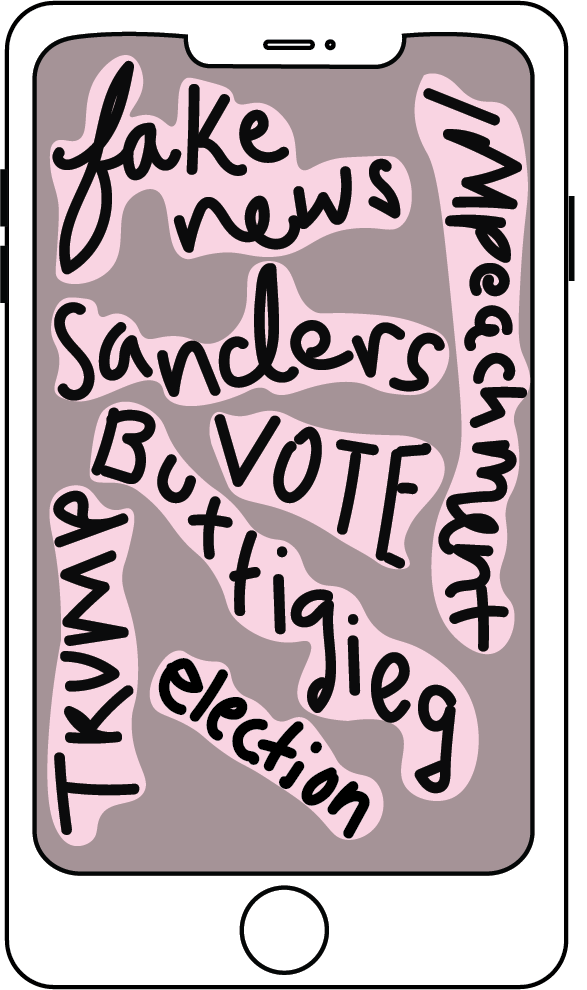It’s Nov. 3, 2020. You’re encased in a cardboard voting box, staring down at a sheet of paper with a list of names of candidates you’re vaguely familiar with. While the ink on your pen makes a small mark to fill in a bubble, your vote makes an indelible mark on history.
It’s extremely tempting to let national and state news fall out of your radar, especially since we juggle academics, jobs and extracurriculars. However, we also have a responsibility to our fellow citizens: being informed enough about policies to vote for a candidate who will best uphold those policies to help students, their family and their community.
So, how do you become informed? Begin by discerning which information is trustworthy. As most of us students are digital nomads, we know that misinformation runs rampant in our social media feeds and some shady news sources. A Pew Research (PW) study conducted after the 2016 election studied Americans’ ability to spot fake news. It found about four-in-ten (39%) are very confident, while another 45% are somewhat confident in discerning fake news. Only 9% are not very confident, and 6% are not at all confident, according to the PW article.
We can all count a number of different people who we believe to be misinformed about the world. But take a step back from right or left partisan beliefs and ensure you’re standing on rock-hard facts. It’s hard to talk about politics, but there needs to be an honest conversation about the credibility of sources before politics can ever be discussed.
To get down to the nitty-gritty, check out the website of a specific candidate and track what sources their promises are backed by. Finding out where they source their information can be used to make the process of finding a credible candidate easier. Another important thing to stress is not believing over-generalizations of specific candidates, and actually looking at the verifiable facts before making a decision.
Zooming into local news, it’s also important to know of the changes taking place in your backyard. It doesn’t take long to check TV6 or attend an NMU Board of Trustees meeting to see what’s happening on campus and in the
community. All this said, news fatigue is really, really real. The start of 2020 hit us with some dizzying events—the coronavirus outbreak, impeachment trials and what even is “baby Yoda?” It’s important to be woke, but it’s also important to be sane. With some tips we outline below, you can do both.
Make it easy to be informed by finding a variety of news outlets with different leanings and install their apps on your phone or computer to give you notifications. Or, subscribe to daily newsletters like TheSkimm to give you quick, consolidated updates about the biggest news stories. Your vote is your not-so-secret weapon to contribute to decisions that could knock down or uphold certain structures of society.
So, use it wisely.

























